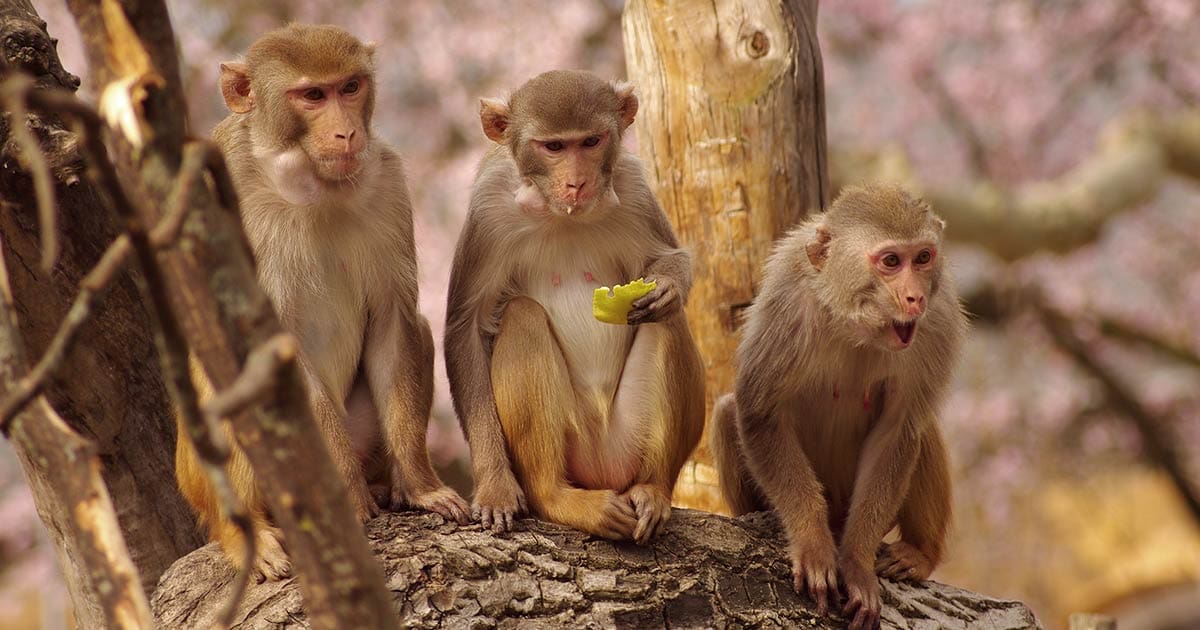Study: Gay sex common among male monkeys

A study has found that same-sex sexual behaviour is widespread among male rhesus monkeys (Photo: Oleg Senkov / Shutterstock)
A study conducted by researchers at Imperial College London has shed light on same-sex sexual behaviour (SSB) in male macaque monkeys. Published in Nature Ecology and Evolution, the study challenges the notion that SSB is rare among non-human animals.
Over three years, the researchers observed a wild colony of rhesus macaques living on the tropical island of Cayo Santiago, Puerto Rico. The team studied 236 male macaques and analysed their behaviour and genetic data, making it the first long-term study of SSB in males within one species.
Surprisingly, the study found that SSB is widespread among male macaques, with 72% of the sample males engaging in same-sex mounting compared to 46% for different-sex mounting. The research reveals that SSB may not be as uncommon as previously believed.
The team investigated various theories surrounding SSB, including establishing dominance in groups, mate shortages, and tension reduction following aggression. They discovered a strong correlation between SSB and “coalitionary bonds,” indicating that male pairs engaging in SSB were more likely to support each other during conflicts, providing an advantage within the group.
Contrary to assumptions, the study showed that SSB does not lead to a fitness cost— a reduction in the number of offspring— for the male macaques. In fact, males participating in SSB may be more successful in reproducing due to the benefits gained from coalitionary bonds.
Same-sex sexual behaviour should not be seen as unnatural
Furthermore, the researchers investigated whether SSB has a heritable component. They found that SSB in males had a heritability of 6.4%, indicating a genetic link to primate SSB outside of humans. This finding challenges the idea that SSB “defies nature and evolution.”
“Our research, therefore, shows that same-sex sexual behaviours can be common amongst animals and can evolve. I hope our results encourage further discoveries in this area,” said first author Jackson Clive.
Do it like they do on the Discovery Channel: homosexuality in nature
While the researchers caution against direct comparisons to humans, they emphasise that SSB is not limited to human beings and should not be seen as unnatural. Instead, it may be an adaptive behaviour in certain contexts, common among primates’ reproductive ecology.
By studying macaques, the researchers found that same-sex behaviour strengthens community bonds and is a prevalent aspect of primate behaviour.
The study’s findings have the potential to challenge preconceived notions and misconceptions about SSB. Further in-depth genetic studies could strengthen the conclusion that SSB is not uncommon among non-human animals and may be a natural feature of primate reproductive ecology.
Funded by the Natural Environment Research Council (NERC), the American Institute of Bisexuality, and the Evolution Education Trust, this study paves the way for future research and a greater understanding of same-sex behaviour across different animal species.
Leave a Reply